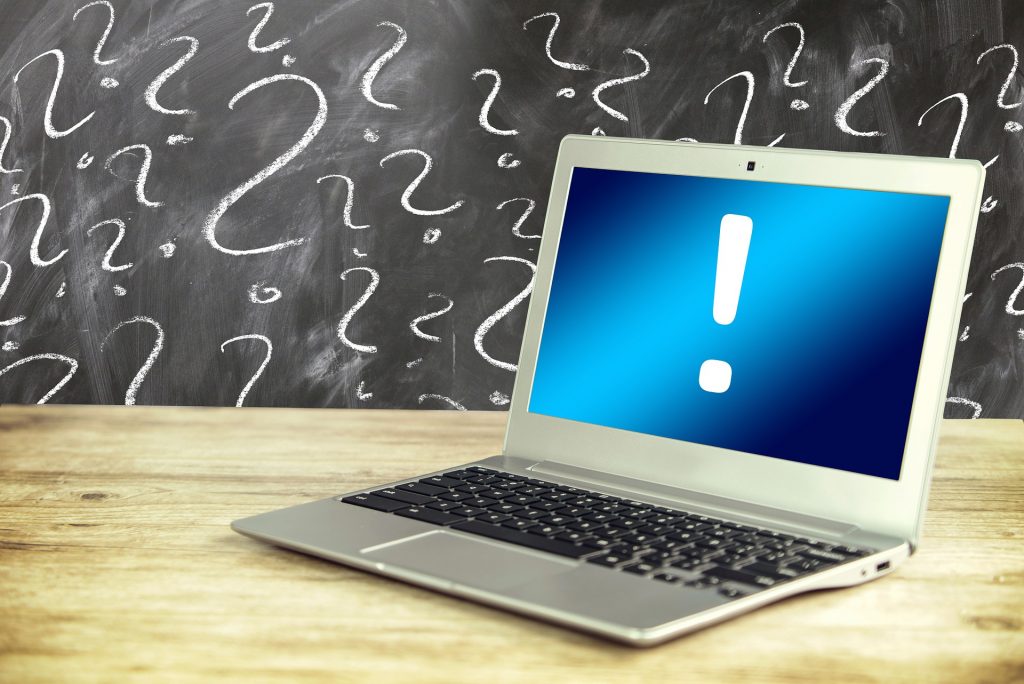Ever found yourself busy on your laptop, when all of a sudden it gets warm, slows down, and might even come to a halt? Chances are that most people have faced that moment. When your laptop runs a bunch of programs simultaneously, it can get too hot, leading to potential lasting harm. If you want to steer clear from laptop overheating, it’s crucial to keep your device in top shape, ensuring it performs well and stays safe from any potential damage. Let’s dive into why this happens and how we can prevent it.
Why is Your Laptop Overheating?
Ever wondered why your laptop seems to turn into a little hotplate sometimes? Well, here’s the lowdown. Laptops have got a tiny space for all their important components. Now, when you throw at them tasks that need a bunch of brainpower, things can heat up – literally. The fans inside your laptop work hard to cool everything down, but there’s only so much they can do. The confined space and the intense computing can still push your laptop to the brink, making it hotter than you’d like and causing some hiccups in its usual smooth operation.

Laptop Computer Overheating – Spotting the Telltale Signs
Every laptop has its own temperature comfort zone, and crossing that limit, especially beyond 95 degrees Fahrenheit, isn’t good news. So, if you sense your laptop turning up the heat, don’t hit snooze – act fast! Ignoring the warning signs can lead to more than just a sluggish device; it might result in permanent damage, and in extreme cases, it could even start a fire or cause burns.
Watch out for these red flags that your laptop might be feeling the heat:
Sluggish Performance
If your laptop starts taking longer than its usual speedy self for basic tasks, it’s giving you a sign that things are heating up.
Accessory Hiatus
When your trusty mouse or keyboard suddenly goes on strike and stops responding, it could be because of laptop overheating.
Frozen Apps
Applications and programs freezing mid-action? That’s another indicator of an overheating laptop.
Unexpected Shutdowns
Is your laptop playing the disappearing act, shutting down out of the blue, and refusing to come back to life for a good few minutes? That’s a clear signal that overheating might be the culprit.
Error Messages
If you see pop-up messages warning you about the heat emergency, there is a huge likelihood that your laptop might be politely asking for a cool down.

Reasons Why Your Laptop is Running Hot
Does it feel like your laptop computer is on fire? Well, besides running too many programs on your device, a few other sneaky culprits might be causing problems behind the scenes:
Blocked Vents
Ever set your laptop on a cozy bed, soft pillow, or your lap? It might seem comfy, but that can cover up the air vents, reducing the cool breeze your laptop needs to stay chill.
Dust and Dirt Drama
Dust, hair, and dirt can clog up your laptop computer’s fan, making it work extra hard to cool things down.
Internal Hardware Hassles
Sometimes, it’s not you, it’s them – your laptop’s internal components. An old, tired battery or worn-out thermal paste (which is used to prevent overheating) might be causing trouble. It’s like the engine in your laptop is getting a bit rusty.
How to Make your Hot Laptop Cool Down
Preventing your laptop from turning into a mini oven is vital to ensure it lasts for a long time. Here’s the lowdown on how to keep things chill and dodge the need for a laptop repair:
Cooler Spaces
Your laptop isn’t a fan of hot spots. Work in cooler rooms to give it a break. Keep the environment comfortable, and your laptop will thank you with smooth performance.
Uncover Those Vents
Let your laptop breathe! Make sure the air vents are free and not hiding under soft surfaces like beds, pillows or sofas. Keep things clear, so the cool air can flow freely.
Flat and Sturdy Surfaces
Your laptop likes stability, just like you do. Place it on a flat, solid surface like a desk or table. If that’s not an option, give it a boost with a book or something sturdy underneath.
Dust Busting
Don’t forget to keep your laptop’s vents clean and clear of dust or any unwanted guests. If you spot any, give them the boot right away.
Cooling Pad Perk
Elevate your laptop game with a cooling pad. This pad is like a comfy throne that raises your laptop above the heat and comes with built-in fans to keep things breezy.

Laptop Overheating Fix – Things you Can Try at Home
If your laptop’s feeling the heat and you’re ready to cool things down, here are a few things you can do to address laptop overheating at home.
- First things first, give your laptop a break. Turn it off, unplug all the cords, and if your laptop allows, remove the battery. Let it chill out until it’s completely cool to the touch.
- Now, let’s get to the root of the issue. Check the vents and fan for any unwanted guests like dirt or dust. These troublemakers usually hang out underneath or on the sides of your laptop.
- Grab some compressed air and blow away any dust or blockages from the vents. If your fan is still throwing a tantrum—making weird noises or running at full speed—it might be time to investigate further.
- If your fan is acting up, consider tweaking the system’s fan control settings. Windows users will find these settings in the BIOS menu. Alternatively, explore third-party power management apps to gain access to fan settings. Adjusting them could give your laptop the cool breeze it needs.
Remember, a little care can go a long way in bringing your laptop back to its cool and collected self.
Bonus Tips that Could Help
Your laptop has tiny intricate pieces working together. When it starts getting too hot, it is signaling that something might be off. Here’s what you can do:
Inspect for Wear and Tear
Dive into detective mode. Check if any parts or components, like the adapter, charging cable or laptop ports, show signs of wear and tear. If these elements have been through the ringer, there’s a chance they might be causing the heatwave.
Spot the Damage
Look closely for any visible damage. If your charging cable or adapter looks like it’s seen better days, or if the ports on your laptop seem worse for wear, it could be the reason why your laptop is very hot.
Consider Replacement
If you uncover damage, it might be time for a replacement. Getting a fresh, new part could be the fix your laptop needs to cool down and get back to its optimal performance.
Do Fanless Laptops Overheat?
If you’ve got a laptop that’s so hush-hush you can’t even hear a fan whispering, you might have a fanless laptop. These devices use passive cooling tricks to stay cool at all times. These laptops spread the heat across, preventing any hotspots from causing trouble. It’s like a strategic game plan to keep the temperature in check.
When things heat up, your laptop starts a process called CPU throttling. It slows down the clock speeds to regulate the heat. This move avoids overheating, but there’s a catch – you might notice a dip in performance when your laptop is feeling the heat stress.
Final Thoughts
Whether your laptop has been around for a long time or if you just purchased it recently, a little proactive care can go a long way. Keep those vents clean, offer a stable surface, and you will be able to steer clear from laptop overheating effectively.
